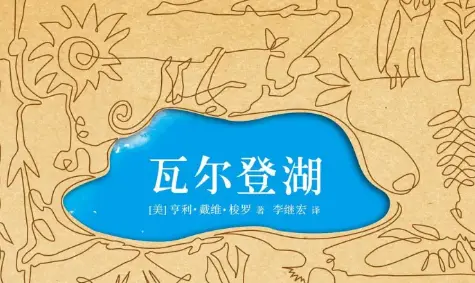Reflections on Walden

Striving to emulate the writing style of Walden. The beauty of its prose varies greatly between versions. Though I have yet to finish it, each reopening yields fresh insights.
I have never been fond of winter’s blazing sun—the crimson orb that casts its light upon an indifferent air. The scant warmth teases the faces of passersby, much like a damp and probing tongue. By mere touch, I feel the burn upon my skin—a harsh caress of light peeling back layers like a blade, as if Siegfried himself wielded his gleaming sword, leaving one’s cheeks tingling, itching, raw.
Perhaps it is the rush of blood within, but walking in such weather brings alternating waves of warmth and chill. The body becomes a vessel of fleeting seasons, encased momentarily in ice, then swiftly embraced by sunlight’s fervent touch, only to await the next frost.
This interplay of sensation often unfolds on the school’s winter grounds. Uncomfortable though it may be, the symphony of voices brings solace, like the lilting melody of “Ballade pour Adeline,” leaving one entranced. The rhythmic tapping of footsteps and the lively echoes of play compose a sonorous celebration of life. What could rival this healthful and jubilant cadence of existence?
The bounce of a basketball on the court sings a hymn of exuberance, its fervor untamed. The friction of a soccer ball against the turf whispers secrets, the soft rustle akin to a golden monkey slipping through the forest’s embrace. Beneath the throbbing drumbeat and the delicate chime of silver bells, the feathery stroke of a badminton bird weaves its airy tapestry—like the frantic flutter of startled pheasants alighting from treetops. Wood, rubber, and plastic collaborate in a playful harmony: the sturdy “thunk” of a paddle meeting ball, the hushed “swoosh” of air past a balloon, the frenetic “hiss” of a rapid volley.
Thus, the wise cynic of the West reclines in a shattered barrel, bidding Alexander not to obscure his sun; Zhuangzi likens himself to a mud-bathing turtle, blissfully wagging its tail. Even now, humans find delight in a few planks and a ball—as do I, sharing in their joy. Such simple pleasures cost so little. Adults swing tirelessly at golf, elevating the game to a mark of elegance, their engagements a ceaseless negotiation of self-image. Children, meanwhile, find endless mirth in the toss of a stick. Yet adults, constrained by societal constructs, cannot stop at sticks, striving instead for gilded wheels of industry.
Gold outshines the stars, black oil surpasses sweet springs. Two grown men building sandcastles might seem foolish and pitiable; yet, to me, they embody the true essence of life. For life, in its unadorned purity, is nature itself. The earth offers us a tranquil haven, yet humanity, in its pride, constructs fortresses of wealth and power, losing itself in self-made illusions.
Only those willing to descend from their towers can truly reclaim themselves, returning to the soil from which they arose.
Some may question my seeming indolence. To them, I ask only that they peer deep into Walden’s crystalline depths. A simple life soothes the weary soul; indeed, simplicity is the sole truth of existence.
